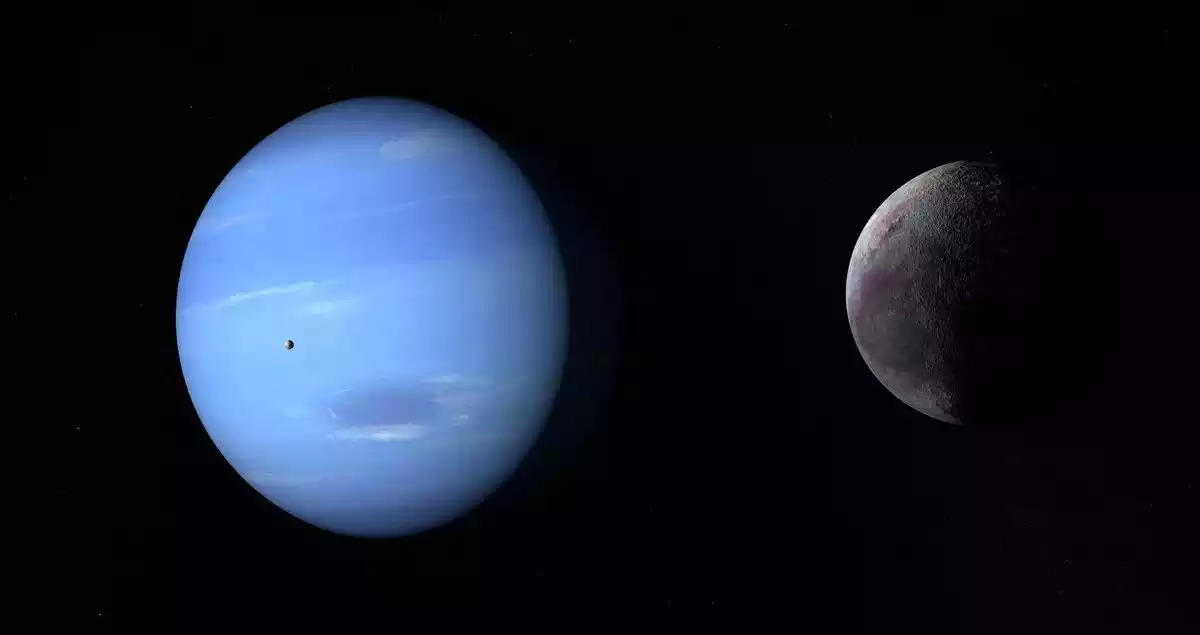
The Relationship between the Planets and the Human Body: How Each One of Them Influences You
Find out their influence and how to take advantage of it
According to astrology, planets rule our life as well as our physical condition and our well-being. In fact, for centuries we have looked to the sky for medical diagnosis.
Medical astrology has its original roots in the theories and practices of Hippocrates, a Greek physician who is considered one of the best therapists of the European Antiquity. His concepts of health are based on the theory of the four elements: fire, earth, air and water. The following quotation is attributed to Hippocrates: “A physician without a knowledge of astrology has no right to call himself a physician!”.
In the Middle Ages, the relationship between the planets and the human body was extended and thoroughly studied and so, it was established that there are special links between each celestial body and the endocrine glands, which rule over various functions in the human body.
- You may be interested in what is the evil eye and how to get rid of it
Namely, in the 14th century, astrology played an important role in medicine and it remained key for years to come, since everyone had faith in this science, whether they were kings, great scientists or common people.
The Relationship between the Planets and the Human Body
Next, we are going to make a specific listing on medical astrology, that is, on the specific influence that each planet of our solar system has on the human body, regardless of our zodiac sign.
The Sun
It is mainly related to blood circulation, the back and the spine. There is also an influence of the king star on the thymus gland, which is located behind the sternum and has an essential role during the first years of human life in areas such as the immune system and growth. Moreover, the Sun looks after your heart and your left eye.
The Moon
According to the relationship between the planets and the human body established by astrology experts, the Moon affects the breasts, uterus, ovaries, fallopian tubes and the unconscious functions of the human body (digestion, excretion, menstruation or pregnancy). It also has an important role in the entire digestive system, which comprises the stomach, oesophagus, liver, gall bladder, bile ducts, pancreas as well as the intestines. It complements the Sun by looking after your right eye, and also after your right arm (leaving the left one to Venus).
Mars
This planet whose name comes from the god of war has an influence on the muscular and urogenital systems of the human body. Moreover, it places value on its effect over the gonads or the sex glands which, after all, is a reinforcement of the association of the planets with the physical expression of purest sexuality. It also protects your left ear (leaving the right one to Saturn).
Uranus
The experts in astrology and planetary influence on the human body point to Uranus as the ruling planet of the blood system, the gonads (just like Mars) and the pineal gland. The latter is an area of the brain that is essential for primitive animals, but it is more controversial for human beings, because there are some people who suggest that this would be a remainder of a third eye.
Mercury
The association between Mercury and the human body leads us to the brain, respiratory functions as well as the entire nervous system. It also has an interesting influence on the linking system between different parts of the body, which is something very delicate.
Venus
This is the planet of the goddess of love and fertility, and its connection to the human body can be noticed in the throat, the lower back and the kidneys. It has been said that Venus is also related to the thyroid gland, which is key to regulating the level of calcium in body fluids.
Jupiter
It is related to the largest gland in the human body: the liver and its depurative function, as well as the pituitary gland, which regulates the production of hormones.
Pluto
According to the ancient wisdom of the human body and the planets, this is another planet connected to the gonads. Moreover, it is related to the cell production and the reproductive function.
Neptune
The god of the sea also rules over our nervous system, particularly over the area of the thalamus, which is the most important brain structure that transmits stimuli to and from the sense organs.
Saturn
It rules over the functions of the gall bladder and spleen, and, according to the medical astrology, it is also related to the skin, teeth and bones.
[predef]mh-general-eng-489[/predef]
What Is the Purpose of the Relationship between the Planets and the Human Being?
Materialistic astrologers think that we will have good or bad health depending on weather the planet is “in the right or wrong place”; as simple as that.
On the contrary, we know that every day of the week is dedicated to a specific planet: Monday to the Moon, Tuesday to Mars, Wednesday to Mercury, Thursday to Jupiter, Friday to Venus, Saturday to Saturn, and Sunday to the Sun.
Therefore, according to medical astrology, if we want to treat an illness of a certain part of our body with natural remedies, the best thing we can do is a treatment that we must begin on the day dedicated to the planet that rules over that body area.
For example, if we have throat problems, we can invoke Venus on Friday and take honey and oregano tea to increase its power, and on Saturday we can take horsetail tea, which is rich in calcium, to improve the health of our bones, since Saturn will protect us.